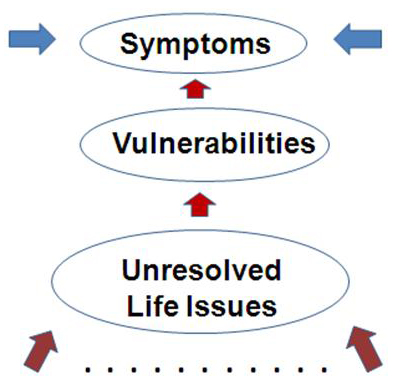
Floods at III Region, Copiapó, Chile – May 2015
by Mariela Prada, PhD
The purpose of this paper is to describe briefly the experience of one week of mental health workshops with a company’s employees and their families who were suffering from the effects of a devastating flood.
The events happened in Copiapó, Chile, located in the III Region, 800 kilometers north of Santiago, Chile. On March 23 and 24, 2015, there were 4 floods that caused much destruction. There were a lot of people who suffered damage or loss of their homes, household goods and even some deaths.
After the flood the community itself responded to the basic needs in three major groups; families, neighbors and co-workers. There were no governmental social services avail- able during the first weeks.
Considering this situation, a company asked a team of specialists to provide some help to
their workers and their families. Thought Field Therapy (TFT) was chosen as the most appropriate tool to provide a quick and effective healing experience. The group of mental health professionals asked for some advice from a TFT expert, Mariela Prada, to design an adequate trauma relief algorithm, which was part of the workshop program.
The team designed a workshop with three areas of intervention to work with them: emotional education, trauma healing tools and networking analysis. The workshop included the TFT algorithm, a relaxation routine, and a working group analysis of individual and social resources.
For a period of five days there were 8 workshops and 75 attendees who shared their experiences. They learned about trauma and learned a routine to deal with anxiety. The people followed the instructions in spite of never having seen anything similar to TFT. They practiced the TFT technique without any resistance.
They demonstrated they felt relief and gratitude. Their faces at the beginning of the workshop showed anxiety and tension. At the end of the workshop their faces showed relaxation, and some were even smiling. It is interesting to note that the therapists experienced the benefits of tapping as well. Because they were using the tapping itself during demonstrations they felt energized instead of exhausted.
The final evaluation of the workshop showed a level of success. This was a single intervention with no plan for a follow up workshop. This was a time of peace and reflection about the tragedy and time of recovery after the flood. Each one learned something useful and maybe they will use tapping again.




